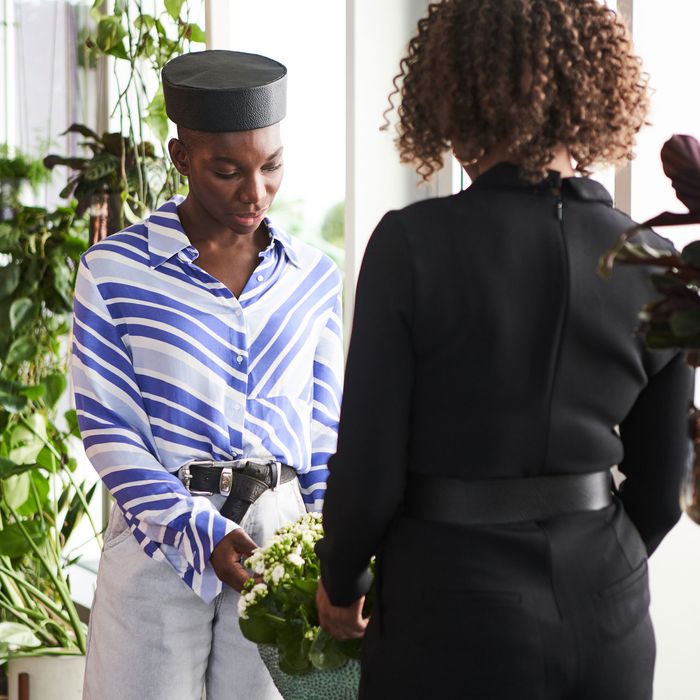

When Chilean deputies put forth the bill, lawyer and politician Gael Yeomans followed up the announcement with, “Yes, gentlemen, that is a sexual assault even if you do not like to hear it.”Īll this allows politicians to say: “we are taking this seriously.” But the promise of justice is a difficult one to keep, in practice. The act of criminalising stealthing is meant to announce to perpetrators and victims alike - who, like Arabella, and possibly her own rapist, might not know - that it is classified as rape, and comes with potential consequences. When we look to address wrongs - and to expand our understanding of what causes harm - we so often look to the creation of rules, laws and institutional responses, and stop there. You might too.Suggested reading Did Bill Cosby deserve to go free? I found solace in the on-screen safe space that I May Destroy You represents. The gravity with which events of rape, sexual exploitation, abuse and harassment can consume the thoughts, actions and feelings of a survivor is often too monumental for our limited vocabularies.


When it comes to my experiences and those of close friends, our reluctance to speak out is rooted in the fear of not being believed, of being questioned or of being altogether ignored. In essence, friend Samson’s affirmation that “If you’re going to fight exploitation, you yourself need to know when you’re being exploited” hits the nail on the head, reminding us of the dual-purpose of the series: to entertain and to educate.Įxploring avenues of consent in a refreshing and informative way, Coel manages to articulate experiences that I could never vocalise without feeling my experiences would be belittled by my own voice and reduced further by the ears of others. Whether that be period sex, bloody tampons and blood clots or questioning the moral highground of the vegan industry, relating to its eurocentricity and hunger for money and power, Coel confronts issues head-on and without hesitation.
I may destroy you stealthing scene series#
Tackling taboos left right and centre, (all accompanied by an unreal soundtrack featuring Garage classics, Rosalía, Little Simz, Tierra Whack and more), the series doesn’t hold back to save your squirms. Raw and resonating, this statement underpins a pillar of the show: highlighting the importance of recognising intersections when considering sexual assault. In a scene where a white girl at school falsely accuses black schoolmate, Ryan, of raping her at knife-point, Arabella’s best friend, Terry, condenses the reality of white privilege within womanhood with a quick witted comment: "White-girl tears have high currency." When Arabella reads the first draft of her new book to her publishers circa 10 years later, she reinforces this sentiment “Prior to being raped I never took much notice of being a woman, I was too busy being black and poor”. In creating this character as the protagonist, Coel challenges the narrative of the “victim” that leaves no space for the woman who doesn’t fit the vulnerable trope.īeyond the lack of perceived vulnerability projected by her outgoing, independent, spur of the moment lifestyle, this is where the intersection between race and gender comes into play. Harrowing and tempting to conceal for fear of reliving the trauma or not being believed, the bravery of Coel to transform this story into a television masterpiece is something that I, and countless other people, are (and will be) deeply grateful for.Ī sociable, successful Twitter-user-turned-writer whose procrastination and FOMO encourage a carefree lifestyle of drugs, sex and rock n roll, Arabella is the epitome of a strong woman and a good time. However, the authentic and nuanced story that Coel so beautifully has written is not purely fictional, reflecting her own experience of sexual assault in 2016, when she was raped by strangers after being spiked, the night before a deadline. The series also tackles various experiences of sexual assault that other characters fall victim to, from spiking and stealthing (non-consensual condom removal) to secret filming and false accusations. I May Destroy You explores what it’s like to navigate through life as a young, black woman and creative in London, struggling to come to terms with the trauma of being raped while refusing to let it define her. Written, co-directed and co-executive produced by Michaela Coel she is bold, brave and inspiring, using her powers of creativity and storytelling to re-energise a conversation about youth, race, sexuality and sexual assault. I implore you to watch this captivating, empowering 12 part series (10 available on BBC iPlayer so far) and give yourself the voice you didn’t know you didn’t have.


 0 kommentar(er)
0 kommentar(er)
